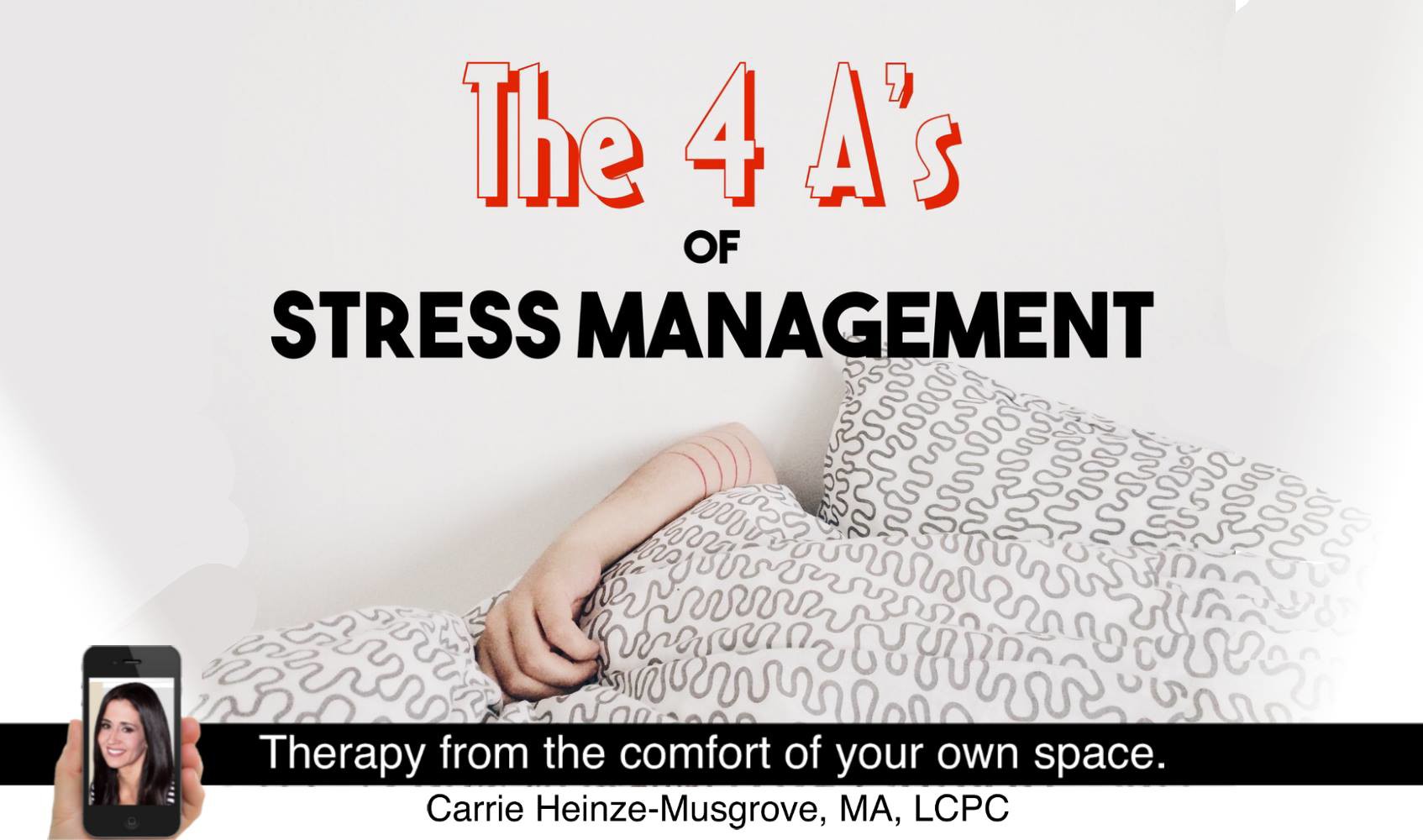Everyone feels stressed, especially when people sense situations are out of control. Stress is generally used to describe normal responses to events that disturb our sense of balance. As we grow older and begin to accept more responsibility in our lives, the potential for stress and stressful situations grows immensely. Stress is anything that poses a challenge or threat to our well-being.
We usually perceive stress as something negative. However, stress can be beneficial in that it acts as a warning sign. There is good stress and bad stress.
Good stress inspires you and can motivate you to complete a task or reach goals. Good stress can act as an incentive for change and help with innovative ideas to solve problems. It can help you sharpen your concentration and keep you on your toes.
It’s only when stress becomes chronic, or when we feel we’re no longer in control of a situation, that it negatively affects our health and well-being. At this point, stress stops being helpful and starts causing major damage. Constant stress can affect your mood, relationships, your motivation, your productivity and your overall quality of life.
Since it is not possible to live without stress, we need to learn to live with it and keep it within healthy levels.
It is important to know stress warning signs and symptoms:
Psychological Symptoms
• Memory lapses
• Poor concentration
• Inability to make decisions
• Negative thinking
• Anxious or racing thoughts
• Constant worrying
Physical Symptoms
• Tension
• Aches and pains
• Stomach problems
• Nausea and dizziness
• Chest pain and rapid heartbeat
• Loss of sex drive
• Frequent colds
Emotional Symptoms
• Irritability or short temper
• Moodiness
• Agitation, inability to relax
• Feeling overwhelmed
• Sense of loneliness and isolation
• Depression or general unhappiness
Behavioral Symptoms
• Eating more or less
• Sleeping too much or too little
• Isolating yourself from others
• Procrastinating or neglecting responsibilities
• Using alcohol, cigarettes, or drugs to relax
• Nervous habits (e.g. nail biting, pacing)
Reprieve from stress involves mastery over the following 4 coping strategies or 4 A’s.
1. AVOID THE STRESSOR. If at all possible, your first line of defense against stress should be to avoid it. It sounds simple enough, right? There are some stressors that absolutely cannot be avoided, but if there is any way to circumvent it, then by all means do so.
• Learn to say no. You have a lot of responsibilities and demands on your time. At a certain point, you cross the line between being helpful and being taking advantage of. Know your limits and stick to them.
• Avoid people who bother you. If you have family member who upsets you, avoid places you know he or she is going to be. If you can’t avoid them, put some physical distance between the two of you. Limit the amount of time you spend with them.
• Take control of your surroundings. Take a walk on your lunch hour. Take the train to work rather than sitting in bumper traffic. Turn the TV off if the news stresses you out.
• Prioritize. Label your to-do list in order of importance. Distinguish between the “must dos” and “should dos.” On hectic days, drop tasks that aren’t truly necessary to the bottom of the list or eliminate them entirely.
2. ALTER THE STRESSFUL SITUATION. If you can’t avoid the stressful situation, alter it. Take inventory of the things that stress you out and take action to change them. Figure out what you can do to lessen the stress so the problem doesn’t present itself in the future. Often, this involves changing the way you communicate and operate in your daily life.
• Express your feelings instead of bottling them up. If something or someone is bothering you, communicate your concerns in an open and respectful way. Not communicating can lead to resentment.
• Be willing to compromise. When you ask someone to change their behavior, be willing to do the same. If you both are willing to bend at least a little, you’ll have a good chance of finding a happy middle ground.
• Be more assertive. Don’t take a backseat in your own life. Deal with problems head on while doing your best to anticipate and prevent them. Tell people what you need.
• Manage your time better. Poor time management can cause a lot of stress. When you’re stretched too thin and running behind, it’s hard to stay calm and focused. But if you plan ahead and make sure you don’t overextend yourself, you can alter the amount of stress you’re under.
3. ADAPT TO THE STRESSOR. If you can’t change the stressor, change yourself. You can adapt to stressful situations and regain your sense of control by changing your expectations and attitude. Adapting to the stressor often involves changing your standards or expectations. There are certain situations that are unchangeable or out of your control, so instead of continually stressing yourself out over things that you have no control of, it is best to adjust or modify yourself.
• Reframe problems. Try to view stressful situations from a more positive perspective. Rather than feeling angry about traffic, look at it as an opportunity to pause and regroup, use it to listen to music.
• Look at the big picture. Take perspective of the stressful situation. Ask yourself how important it will be in the long run. Will it matter in a month? A year? Is it really worth getting upset over? If the answer is no, focus your time and energy elsewhere.
• Adjust your standards. Perfectionism is a major source of avoidable stress. Stop setting yourself up for failure by demanding perfection. Stop demanding perfection or having complete control. Set reasonable standards for yourself and others, and learn to be okay with “good enough.” Eliminate words such as “always,” “never,” “should,” and “must.” These are telltale marks of self-defeating thoughts.
4. ACCEPT THE UNCHANGEABLE. Some sources of stress are unavoidable. You can’t prevent or change stressors such as a sudden illness or being fired. In such cases, the best way to cope with stress is to accept things as they are. Acceptance may be difficult. This doesn’t necessarily mean that you agree with it or are ok with it. It means you are accepting it for what it is.
• Don’t try to control the uncontrollable. Many things in life are beyond our control, particularly the behavior of other people. Rather than stressing out over them, focus on the things you can control such as the way you choose to react to problems.
• Share your feelings. You may not be able to change a frustrating situation, but that doesn’t mean your feelings aren’t legitimate. Talk to a trusted friend or make an appointment with a therapist. Expressing what you’re going through can be very cathartic, even if there’s nothing you can do to alter the stressful situation.
• Learn to forgive. It takes energy to be angry. Forgiving may take practice, but by doing so you will free yourself from burning more negative energy, whether you need to forgive yourself or others.
• Learn from your mistakes. There is value in recognizing a “teachable moment.” You can’t change the fact that procrastination hurt your performance, but you can make sure you set aside more time in the future.
• Practice positive self-talk. It’s easy to lose objectivity when you’re stressed. One negative thought can lead to another, and soon you’ve created a horrible day or week. Our thoughts are the source of your emotions and mood. The conversations you have with yourself can be destructive or beneficial. They influence how you feel about yourself and how you respond to events in your life. If you think you can or you think you can’t, you’re right. You should immerse yourself with positive self-talk on a regular basis.
Whether good or bad, stressors are a part of everyday life. Practice applying these 4 techniques of avoidance, altering, adapting and accepting to help you cope with stress.
Carrie






